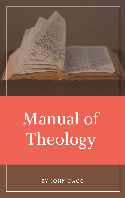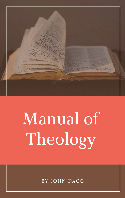Ads
Commentary about Enroth, R. – Recovering from Churches that Abuse
Comments on Recovering from Churches that abuse is a commentary post about some of my ideas about Enroth’s book Comments on Recovering from Churches that abuse. This post is only comments from Chapter 1.
Chapter 1: Searching for Freedom
Enroth points out that many people who suffer under abusive churches are only seeking to serve God. As a pastor, I point out that we are not called on by God to support and fulfill the earthly wishes and desires of God’s servants. We are called to be like Christ. When a leader is not like Christ, it makes no matter what “great plans” or “great work” he is pushing, we need to get away from him. In every case of abusive churches and leaders, the leader is not like Christ. That simple point should be enough to force a good Christian to flee.
Enroth allows for these false prophets that they may be abusing without knowing it really. A leader who doesn’t work for his followers is no biblical leader. A leader who does not seek to be like Christ is no biblical leader. I would differ with Enroth here. Ignorance of what you are supposed to be doing as a pastor is exactly the opposite of what a pastor’s job is. Consider a shepherd of sheep animals. If he doesn’t understand the dynamic between sheep growing wool in the winter and needing it cut off before the summer heat, then he isn’t much of a shepherd. Likewise, any pastor of a church that doesn’t understand God’s work is totally lost as a pastor. God’s work is not the building up of a great organization under the pastor’s control, but rather the salvation of souls, and their edification. That takes priority, and false prophets put that as a priority very low down in their list of priorities.
Trying to Fit In from Recovering from Churches that abuse
Enroth points out the case of Carlos, and the pressure used to get workers to work, and their motivation. Again, I see this problem in many churches. People are given ministries (church jobs) to make them faithful when their fidelity in attending and participating should be established first, and then positions given to those who are faithful. But the underlying problem here is that God’s work is seen more as an activity than “being”.
When God’s people are Christlike, they will pray, witness, work and give. The problem is that leadership is not using the force of Scripture to make them Christlike. They are using other motivators which are basically illicit. For example, emotion instead of a sense of love for Christ that forces motivation that ends in labors.
As a pastor, I have people in my church that don’t participate much in our church activities. I can see that as a problem, but the deeper you investigate their individual situation, they are depressed by problems within their own lives. A woman fighting to defend off a divorce with an unsaved husband that pressures her not to attend church or get more involved. This makes her greater participation in church something that is great for the church (at least for a while) but will destroy her marriage. As the pastor, I cannot force her to participate more, and I understand her situation, pray for her, and seek to see the husband saved. But I do not see pressuring people to do what I want, when their individual situations may indicate it best that they be limited in their participation. Churches that abuse
In the book Toxic Faith, Stephen Arterburn and Jack Felton characterize the plight of people like Carlos:
Persons with low self-worth feel alienated and isolated. They want to belong and be accepted. Toxic faith leaders know this. They can pick out wounded followers who are looking for someone to make them feel important. Under the guise of ministry they cater to people’s weaknesses until those people believe they are receiving genuine caring … Toxic faith practitioners find those with low selfworth and minimal boundaries. They ask them to trust just a little. With that first step of trust, the persons are flooded with affirmation and love.6
The idea of “Toxic Faith” is a religion that “is good for the leaders” but bad for the followers. It is something that causes them spiritual and moral damage. The idea here is that the edification (moral benefit) to the members is a high and absolute value.

Dagg Manual of Theology is a theology work in 2 volumes by J.L. Dagg a Reformed Southern Baptist. It is an extensive, very ample presentation of doctrines.
This is an extensive Bible Systematic Theology (Bible Doctrines book) from a conservative point of view.
Read/Download: now with pdf download link. 50,000 views on this page with download link







